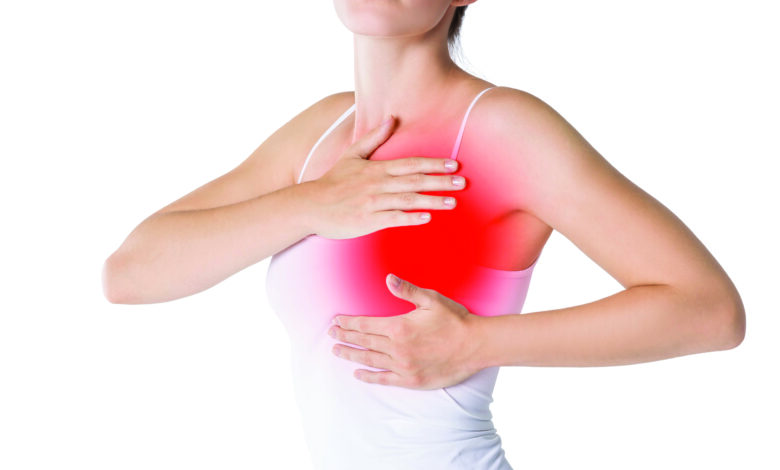Monthly Articles
90% of breast conditions are not cancer

90% of breast health problems are benign — not cancer. Abnormalities may include those listed below.
Cysts
- They are not related to breast cancer.
- About 60% of women will have at least one cyst during their lifetime.
- Cysts are collections of fluids in breast tissue.
- They are usually small and do not cause problems, but may increase in size, form a lump, or cause pain or tenderness.
- Cysts occur most commonly between the ages of 35 and 50 years and especially between 42 and 48 years.
- They are uncommon after menopause except in women on hormone replacement therapy.
Hormonal thickening
- Hormonal thickening is not related to the development of breast cancer.
- This can occur at any age during the reproductive years and may come and go.
- It is a response to hormone changes and is often related to pre-menopausal breast tenderness. It usually disappears naturally after menopause.
- Further diagnosis can be made with a combination of breast examination, mammography, ultrasound, and needle biopsy.
- No treatment is necessary unless there is pain.
Fibroadenoma
- They are not related to breast cancer but do need to be accurately diagnosed. This can usually be done by needle biopsy.
- These are very common nodules in the breast and are commonly benign.
- They are common in young women (under 25) but can occur at any age.
- They appear as oval, tender masses and may not be able to be felt as lumps.
- Many women have more than one.
- Diagnosis is usually made by ultrasound, needle biopsy, and mammography (in older women).
- They may be removed by surgery, but this is not essential.
Nipple discharge
- Most nipple discharges are harmless — particularly if the discharge comes from more than one duct and from both nipples.
- If the discharge is bloodstained or watery, it is important to see your doctor.
- These discharges are due to the production of fluid by normal breast cells in response to hormones.
This article was submitted by Christine Haase, CCT, as part of the American College of Clinical Thermology Association. Christine Haase is a certified clinical thermographer (CCT), Level I and Level II, with the American College of Clinical Thermography (ACCT) since September 2012. She owns Valley Thermography, LLC, located at 1111 N. Lynndale Drive Suite 202 in Appleton. Learn more about DITI and Valley Thermography by calling 920-380-1365 or visiting valleythermography.com.




